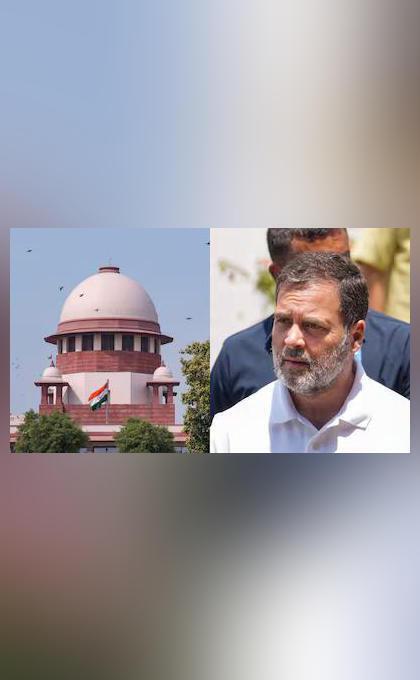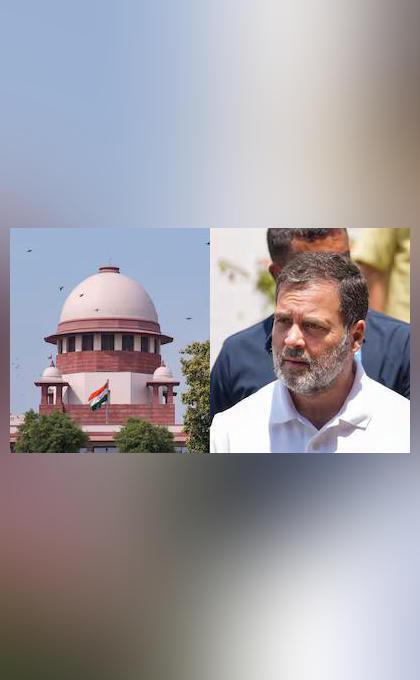
Why ask on social media & not in parliament: SC to Rahul on ‘land grab’ claim
The Supreme Court’s recent rebuke to Congress leader Rahul Gandhi over his claims about China grabbing 2,000 square kilometers of Indian land has sent shockwaves across the political spectrum. The court’s stern remark has raised important questions about the accountability of political leaders and the use of social media to make unfounded claims. In this blog post, we will delve into the details of the case, the SC’s verdict, and the implications of this episode on Indian politics.
In 2020, Rahul Gandhi made a sensational claim that China had grabbed 2,000 square kilometers of Indian land. The remark was made in a public rally in Wayanad, and it quickly went viral on social media. However, the claim was widely disputed by the government and the Indian Army, who maintained that there was no evidence to support it. Nevertheless, Rahul Gandhi refused to back down, and the controversy continued to simmer.
Fast forward to March 2023, when the Supreme Court took up the defamation case filed by the BJP leader, Dr. Suresh Chugh, against Rahul Gandhi for his remarks about the Indian Army. The court, while staying the defamation case, pulled up Rahul Gandhi for making unsubstantiated claims about China grabbing Indian land.
“What is the basis of your knowledge that 2,000 square kilometers of Indian land was occupied by China?” the SC asked Rahul Gandhi’s counsel. “How do you know it?” The court’s sharp questioning was a clear indication that it was not impressed with Rahul Gandhi’s claim.
The court’s verdict has sparked a heated debate about the accountability of political leaders and the role of social media in spreading misinformation. The SC’s remark has raised important questions about why Rahul Gandhi chose to make such a claim on social media instead of asking questions in Parliament.
Parliament is the platform where political leaders are expected to engage in constructive debates and discussions about important issues affecting the country. It is a place where they can seek answers to their questions, hold the government accountable, and shape public opinion. However, Rahul Gandhi’s decision to make his claim on social media suggests that he was more interested in sensationalizing the issue and creating a stir rather than engaging in a constructive dialogue.
Moreover, the SC’s verdict has also highlighted the importance of fact-checking and verification before making public statements. Rahul Gandhi’s claim about China grabbing Indian land was widely disputed by experts and officials, but he refused to back down. This incident highlights the need for political leaders to be more responsible and accountable in their public statements.
The SC’s verdict has also sent a strong message to political leaders that they cannot make unsubstantiated claims and then hide behind the veil of freedom of speech. The court’s stern remark has shown that it will not tolerate such behavior and will hold political leaders accountable for their actions.
The implications of this episode on Indian politics are far-reaching. It highlights the need for political leaders to be more responsible and accountable in their public statements. It also underscores the importance of fact-checking and verification before making public statements.
In conclusion, the SC’s verdict on Rahul Gandhi’s claim about China grabbing Indian land is a timely reminder of the importance of accountability and responsibility in public life. Political leaders must be more careful in their public statements, and avoid making unsubstantiated claims that can damage the country’s reputation and create unnecessary tensions.




